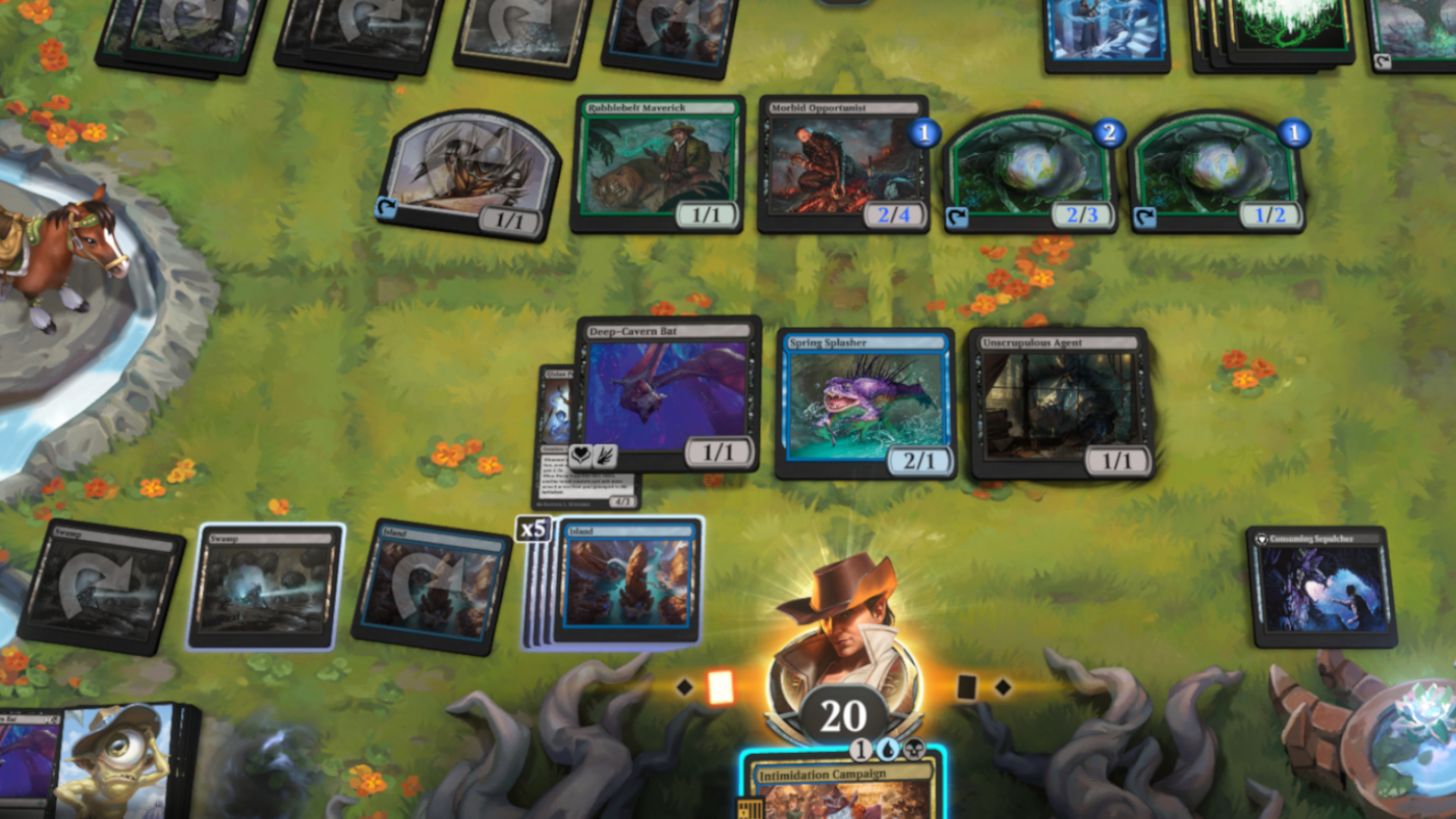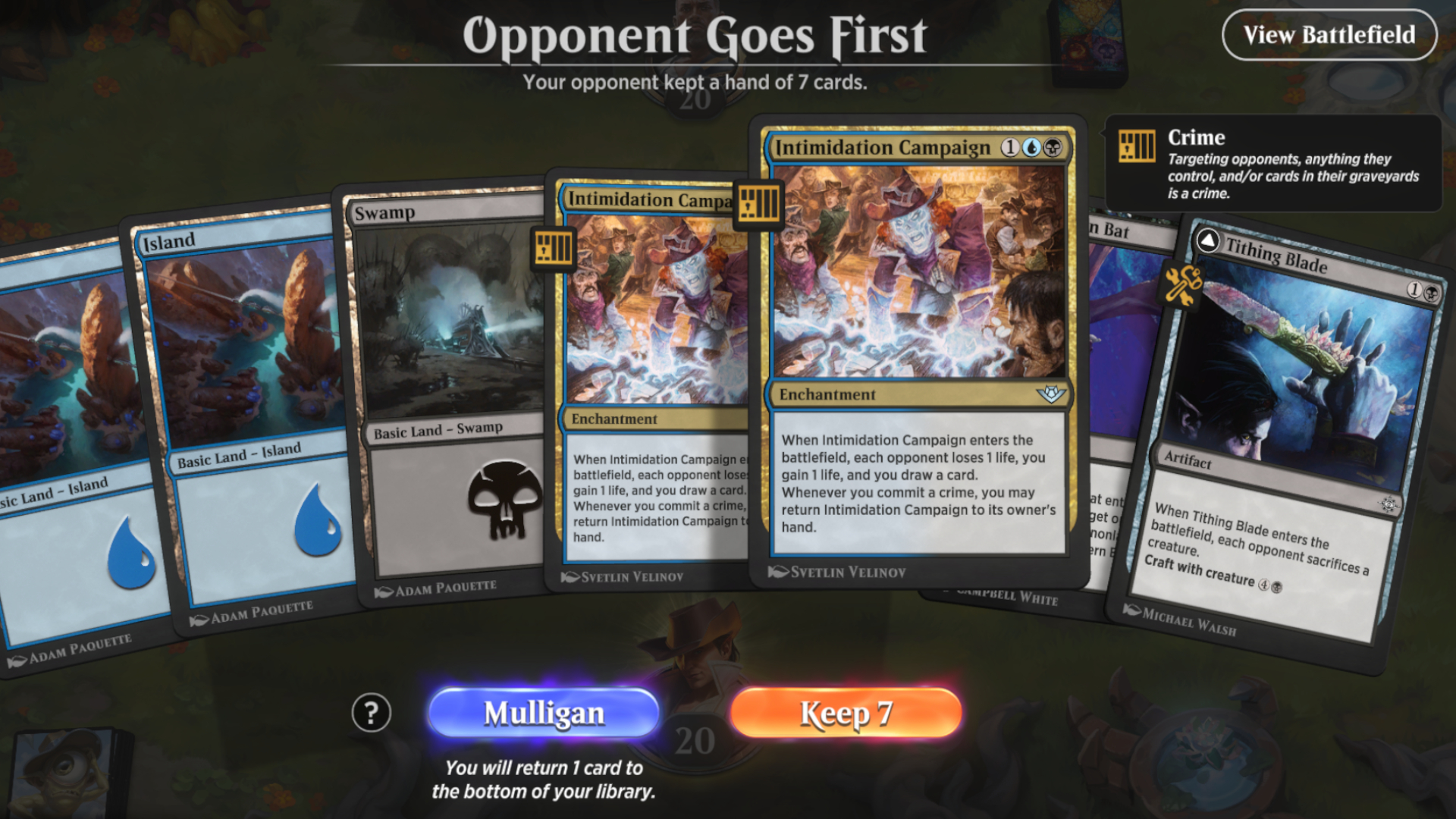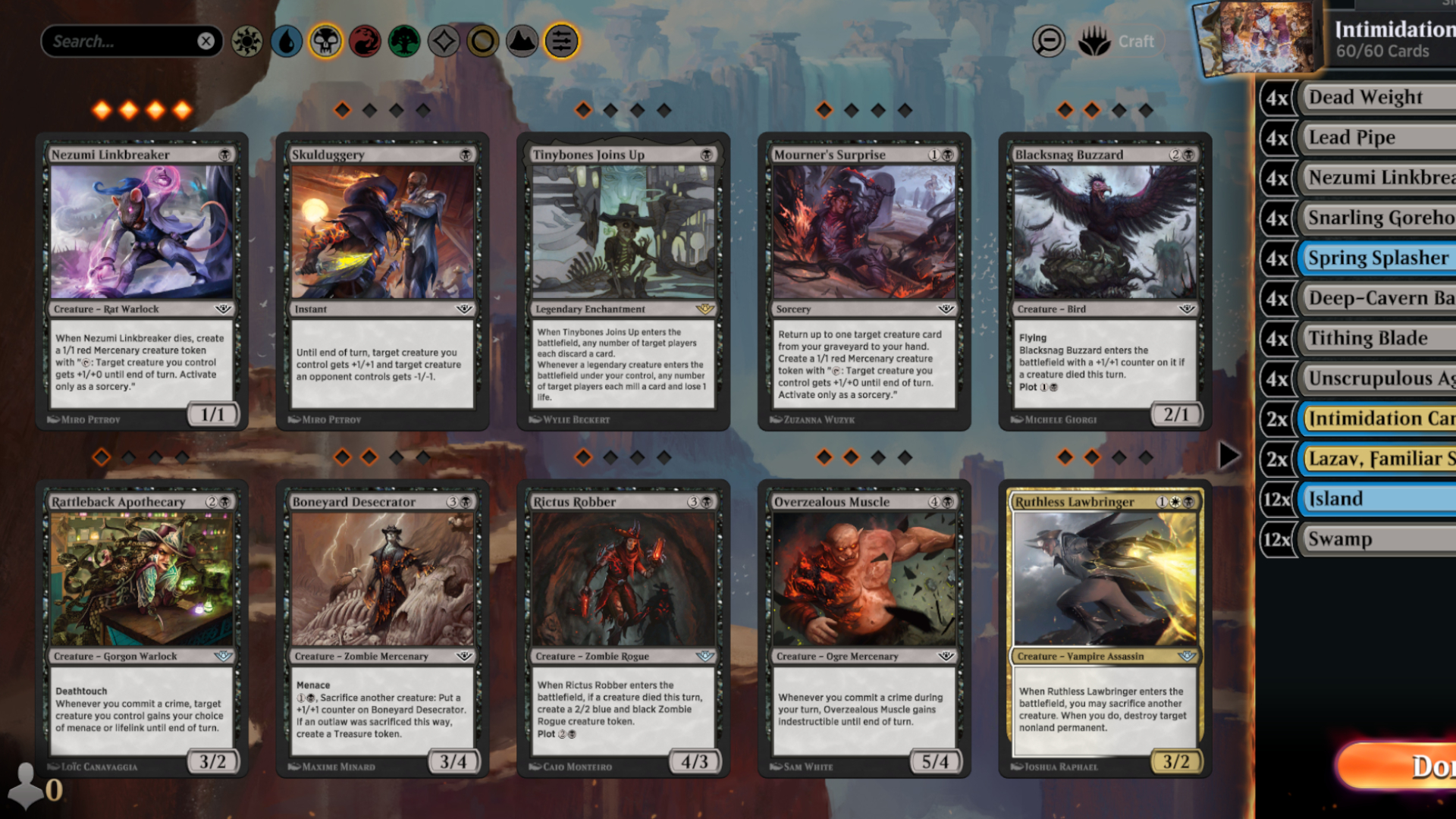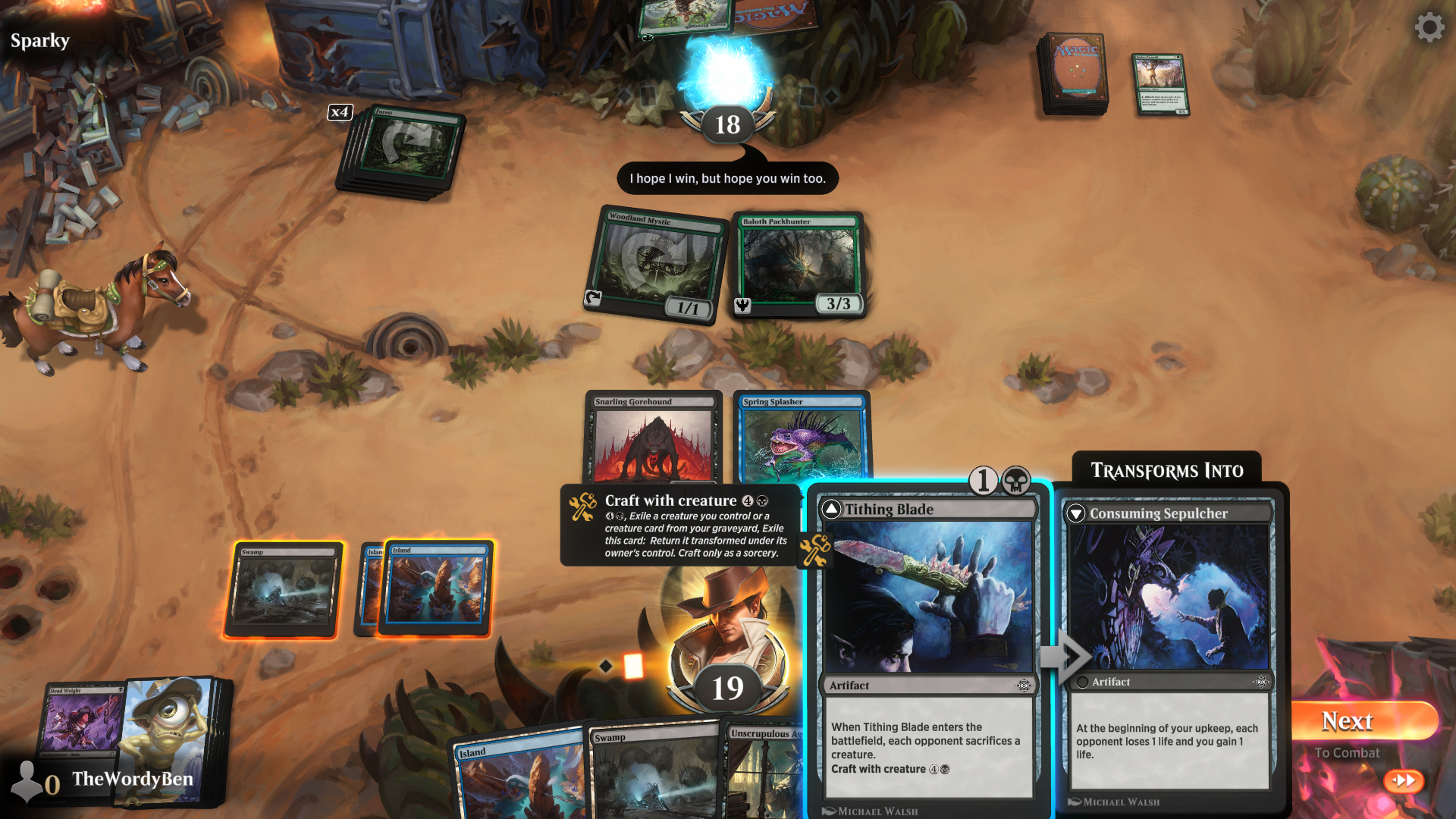
Magic: The Gathering Arena ruined me.
I wasn't expecting to fall so hard. Yes, MTG is labeled as one of the best card games on the regular but it isn't an easy nut to crack. For starters, it's swimming with terms that aren't always explained on the cards themselves. Next, there are at least half a dozen match types that require different deck combinations. Oh, and countless sets weigh down shelves these days, so knowing where to start is… well, it's a lot. This caused me to bounce off Magic: The Gathering on repeat for a long time.
Now, though? I'm a total convert, and it's all MTG Arena's fault.
Variety is the spice

If you're unfamiliar, Magic: The Gathering Arena is a free app that works on practically everything with a screen – phones, tablets, and anything with access to Steam or Epic. Its gameplay is also exactly the same as its paper equivalent, albeit with snazzy sound and visual effects to spice things up. However, it differs from the tabletop version in a couple of key ways. Chief among these is the extensive tutorial (AKA 'Color Challenge') that teaches you how to play Magic: The Gathering by drip-feeding mechanics step by step. If you ask me, it's one of the best ways to learn.
As an example, it shows off MTG's colors (or 'mana') and demonstrates how to play with those card types. Because each color has a distinct playstyle, it’s a good way of learning what you prefer. Me? I discovered that I adore black decks thanks to their slew of negative effects which saddle foes with annoying modifiers or returning creatures from the graveyard. (The gnarly undead monsters black is known for help, naturally.)
Honestly, Arena is the reason I've gotten into Magic in such a big way. It helped me finally understand what can be an intimidating game
Beforehand, I assumed I'd be all about green or blue – I've never met an animal I didn't love, so that felt like a natural fit. But I couldn't get on with them, or they left me cold. Being able to break out a thoroughly annoying black deck, though? That ticked all the boxes, and I was suddenly all in. Matches felt more exciting right away, and it was beyond satisfying to set off the row of dominoes that were my card synergies.
Without the Color Challenge making me try different mana types, I wouldn't have discovered the love of my MTG life.
Hard limits

Much like Baldur's Gate 3 does for Dungeons & Dragons, MTG Arena also shows you what you can and can't do due to its limitations. If you aren't allowed to take an action, it doesn't matter how hard you try; it just won't work. This removes guesswork and nips mechanical questions in the bud before they can derail a session. Are you allowed to use this specific ability, at this moment? Can you play this card? You'll soon find out, for better or worse. It's a bit like having the sides up on a bowling alley; because your options are limited, you get the hang of what you are able to do quickly.
I'll happily admit that there are problems with Arena – it obviously isn't perfect. The app doesn't really teach you how to make a deck of your own, for starters. Or a good one, anyway. To build a deck that didn't suck, I had to enlist the help of our Managing Editor of Hardware and general MTG buff Tabitha Baker. Without those pointers, I'm not sure I'd have been bitten by the MTG bug.
MTG Arena also shows you what you can and can't do due to its limitations
It has the capacity to get expensive as well. For starters, a couple of game types like Draft require you to buy in, just like paper (though in all fairness, they're not the 'norm'). Second, there are ways to earn card boosters through normal play but it can take a while to grab much beyond single packs. As you'd expect, in-app currency is far more expedient – and that means there's always the niggling suspicion that anyone shelling out in the Arena store will have better decks. It's a lot easier to construct something kick-ass if you've bought a metric crap-ton of boosters. Daily challenges and wildcards soften the financial need, too; the former earn you coins you can then use on boosters, while the latter can be used to create or clone cards to fill a deck rather than chancing it with booster packs.
Nonetheless, the same could be said of the original tabletop version. I'm impressed by how much you can get your hands on without ever spending a dime, too. The latest MTG Arena codes (usually drawn from the most recent sets, bar one) will give you a handful of free packs right away, for example. The free side of the mastery track will spit out the occasional booster, too.

No, I wouldn't go so far as to say the app is 'generous.' But it doesn't feel outrageous or overpriced compared to paper. And if you just want to play normal match types like Standard or Alchemy and build a deck with the odd booster you earn along the way, you never have to get out your wallet… or feel like you should, anyway. You can earn plenty of cards from the most recent sets like Murders at Karlov Manor and Outlaws of Thunder Junction, just through play. And even if you didn't, you could still play Historic that allows you to use cards now not Standard-legal – you wouldn't need to stress about your deck being rotated out of use.
Honestly, Arena is the reason I've gotten into Magic in such a big way. It helped me finally understand what can be an intimidating game. It gave me instantaneous matches to hone my skills where before I'd need to corral friends or convince loved ones to give it a try, too, Plus, I discovered something unexpected that I fell head over heels for – deck-building. Putting together a deck revolving around a specific card or effect you like (and tweaking that deck over time as you find out what works and what doesn't) is strangely moreish. Without Arena, I wouldn't have been able to do that; you can create duplicates of cards easily in the app, whereas in real life you'd have to try your luck with countless boosters or buy single cards separately.
Basically? I'm obsessed with Magic: The Gathering now, and it's all Arena's fault.
For something else to play, be sure to check out the best board games and the best tabletop RPGs.







